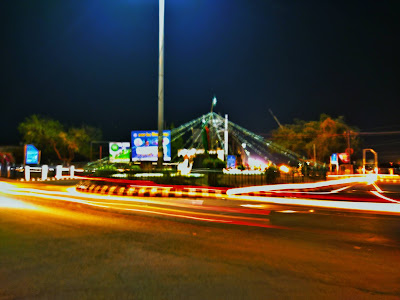This blog will be a continuation of my sustainable living and zero waste lifestyle series. If you have not read those blogs, the links to them are given below.
https://archishmansardar.blogspot.com/2019/12/the-baby-steps.html
https://archishmansardar.blogspot.com/2019/12/choosing-sustainability.html
In today's blog I will be specifically mentioning the scenario surrounding zero waste shopping in India. It's actually very easy to lead this lifestyle with in our country. Most of the people who live in developed countries and want to lead this kind of lifestyle throng to farmer's market to get their greens. Greens in such countries are a part of shopping mall culture and are vacuum packed in plastic to increase their shelf life. The localities that have farmer's markets can easily sustain such a lifestyle but those which lack, it comes down to the people. They need to become conscious consumers. As for our country, greens are primarily sold in daily green markets. In some areas weekly haats are also seen. It's easy to go zero waste just by carrying a reusable shopping bag because produce are rarely packaged in plastic and are usually fresh from the fields.
From greens now let's move to sea foods and meat. Unfortunately this is an area where going zero waste becomes tricky. It's not that it can not be done, it's just a bit difficult. In India sea foods and meat are usually given in single use plastic bags because paper bags can not yet serve the purpose. To avoid these plastic bags we can carry reusable containers and ask the shopkeeper to fill them instead of a plastic bag. There are some areas mostly in the eastern and central India where these kind of purchases are wrapped in leaves and tied with coir which makes them waterproof and easy to carry. Lotus leaves, Saal leaves etc are used for this purpose. This method if adopted pan India can really curb out single use plastics from our daily shopping.
India is primarily a vegetarian country. Any discussion would be incomplete unless we review their side too. Cottage cheese or paneer forms an important part of vegetarian diet enriching it with the required protein. Unfortunately they come in vacuum packed plastic bags. Milk too comes in plastic packaging. But there are ways to do away with this too. The stratified Indian society has assigned some people with cow milking activities. Consumers can easily buy fresh milk from them which they get delivered directly to their homes and without any packaging. These people also make products such as ghee, paneer(cottage cheese), butter and sell them. Just ask them for their products and you can get them delivered home without any packaging to worry about.
The daily shopping section is where consumers generate the most waste. But when one decides to deal with problems of our lifestyle and choose to become conscious we can impact our surrounding in a positive way. I will continue this discussion further in another blog. Till then take time to reflect on your lifestyle and adopt the changes that you can.
Here are some topics for you to indulge next:
https://archishmansardar.blogspot.com/2020/01/habit-of-reading.html
https://archishmansardar.blogspot.com/2019/12/ideal-education.html
https://archishmansardar.blogspot.com/2019/09/reducing-waste.html
https://archishmansardar.blogspot.com/2019/09/caring-for-environment.html
https://archishmansardar.blogspot.com/2019/12/the-baby-steps.html
https://archishmansardar.blogspot.com/2019/12/choosing-sustainability.html
In today's blog I will be specifically mentioning the scenario surrounding zero waste shopping in India. It's actually very easy to lead this lifestyle with in our country. Most of the people who live in developed countries and want to lead this kind of lifestyle throng to farmer's market to get their greens. Greens in such countries are a part of shopping mall culture and are vacuum packed in plastic to increase their shelf life. The localities that have farmer's markets can easily sustain such a lifestyle but those which lack, it comes down to the people. They need to become conscious consumers. As for our country, greens are primarily sold in daily green markets. In some areas weekly haats are also seen. It's easy to go zero waste just by carrying a reusable shopping bag because produce are rarely packaged in plastic and are usually fresh from the fields.
From greens now let's move to sea foods and meat. Unfortunately this is an area where going zero waste becomes tricky. It's not that it can not be done, it's just a bit difficult. In India sea foods and meat are usually given in single use plastic bags because paper bags can not yet serve the purpose. To avoid these plastic bags we can carry reusable containers and ask the shopkeeper to fill them instead of a plastic bag. There are some areas mostly in the eastern and central India where these kind of purchases are wrapped in leaves and tied with coir which makes them waterproof and easy to carry. Lotus leaves, Saal leaves etc are used for this purpose. This method if adopted pan India can really curb out single use plastics from our daily shopping.
India is primarily a vegetarian country. Any discussion would be incomplete unless we review their side too. Cottage cheese or paneer forms an important part of vegetarian diet enriching it with the required protein. Unfortunately they come in vacuum packed plastic bags. Milk too comes in plastic packaging. But there are ways to do away with this too. The stratified Indian society has assigned some people with cow milking activities. Consumers can easily buy fresh milk from them which they get delivered directly to their homes and without any packaging. These people also make products such as ghee, paneer(cottage cheese), butter and sell them. Just ask them for their products and you can get them delivered home without any packaging to worry about.
The daily shopping section is where consumers generate the most waste. But when one decides to deal with problems of our lifestyle and choose to become conscious we can impact our surrounding in a positive way. I will continue this discussion further in another blog. Till then take time to reflect on your lifestyle and adopt the changes that you can.
Here are some topics for you to indulge next:
https://archishmansardar.blogspot.com/2020/01/habit-of-reading.html
https://archishmansardar.blogspot.com/2019/12/ideal-education.html
https://archishmansardar.blogspot.com/2019/09/reducing-waste.html
https://archishmansardar.blogspot.com/2019/09/caring-for-environment.html






No comments:
Post a Comment